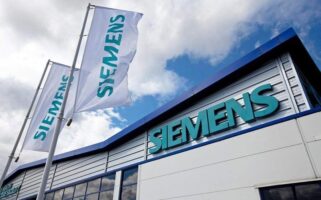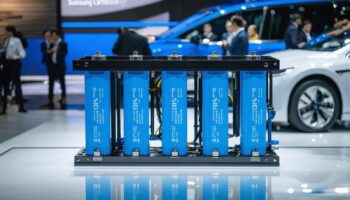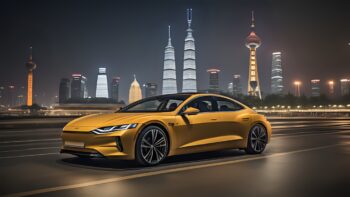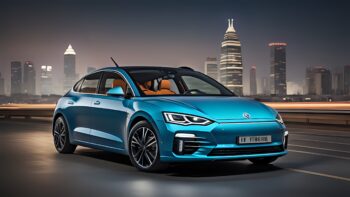City Electric Buses – Already at cost parity with ICE?
ELECTRIC CITY BUSES
It seems that the total cost of ownership of electric city buses is already at parity with that of
internal combustion engine buses. Isn’t it time for all cities to electrify their bus fleets?
Pollution
In London, England it is widely held that 9,000 unnecessary deaths occur a year due to air
pollution. Cities around the world are on drives to tackle air pollution through congestion charging
and pressures on the public and fleet owners to undergo a shift away from ICE powered vehicles.
Cost
Fleet owners argue that capital costs of electric city buses is problematic. Bloomberg New Energy
Finance (Bloomberg NEF) suggests in a report, “Electric Buses in Cities: Driving Towards Cleaner
Air and Lower CO2” that parity of unsubsidised capital costs between diesel buses and Electric
Buses is set to occur in around 2030. This doesn’t tell the whole story though – through the lifespan
of ICE and Electric City Buses, costs of running them may have already reached parity. Total Cost of Ownership is a regression of all of the costs associated with a vehicle from sale to scrap – capital purchase costs, fuelling, and maintenance being the main factors. In April last year
Bloomberg NEF assessed the TCO of Electric City Buses and ICE buses. The report found, “a bus
with the smallest battery, even when coupled with the most expensive charging option, would be
cheaper to run in a medium sized city, where buses travel on average 170km/day (106 miles).” The
biggest battery (350kWh) on a slow charge is exactly at parity at $0.92/km.
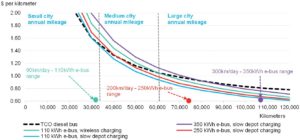 Picture Source : Bloomberg NEF
Picture Source : Bloomberg NEF
Essentially it is cheaper to own and run an electric city bus than it is to carry on using diesel machines even today. The report looked at a variety of different battery and charging systems and found this to be the case for buses in small and mega-cities alike with their different demands. One thing holding back the economic argument is that there isn’t the range of Electric Buses on the market to suit all cities needs. This needs to be demand led for the manufacturers to produce the goods.In Bloomberg NEF’s main report it states: “Cities believe the number of e-bus models offered is stillvery limited, and does not sufficiently cover all of their needs. Cities need to work closely with Electric Bus Manufacturers to show demand for specific types of e-buses.”
Cities taking the leap
China is well documented as leading the world where it comes to putting electric city buses on the
road. Shenzhen for example has electrified its entire 16,000 unit bus fleet. European cities are
lagging behind though, with many of the arguments above cited against going electric.
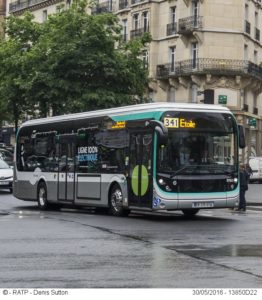 Picture Source : RATP
Picture Source : RATP
It seems that Paris’s RATP bus company is one of the first to go full bore for an electric city busfleet. Green Car Congress reported earlier this month, “Paris transport operator RATP is splittingan order for nearly 800 electric buses into three identical batches, in their minimum and maximumamounts, with HeuliezBus, Bluebus/Bolloré and Alstom/Alstom Aptis.” The same article pointed out that RATP already has a very low emissions fleet but this is set to change even more: “The RATP fleet, consisting of 4700 bus, already includes 950 hybrid, 140 biomethane and 83 electric buses. Before the arrival of deliveries related to this consultation, theRATP fleet in île-de-France will increase by 77 electric buses and 50 biomethane buses in 2019.”
That means it is set to have 960 electric city buses, around 20% of its fleet, in fairly short order.
In RATP taking the leap and getting the necessary European data for running an electric city bus
fleet, so other transport authorities can use that data to assess electrifying their own fleets. That
would help dismiss another widely thrown argument – that no one in Europe has experience of
running a large fleet of such vehicles. One by one the arguments against going electric fall.
Hopefully the day will come soon that electric city bus fleets will become the norm, not the
exception.
There’s no way back, ‘Electric Mobility’ is a fact!
Header Source : Proterra



